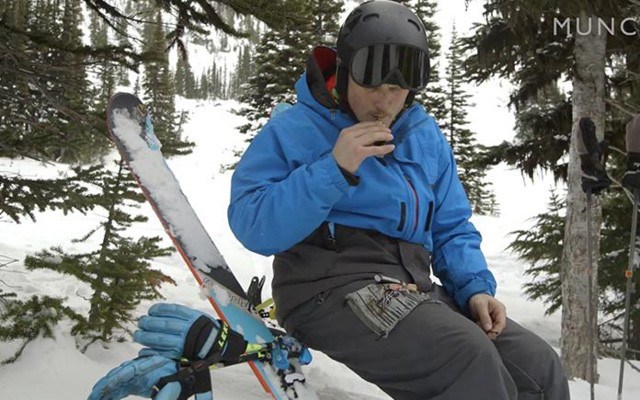As legalization moves closer to reality, ski resorts across the country have to consider what Canada's new pot landscape will mean for the millions of skiers and riders who take to the slopes each year.
But, to hear ski resort operators tell it in both Canada and in American states where weed is already legal, the consensus seems to be: not much.
Ottawa has announced its intention to legalize marijuana for adults by July 2018.
While questions remain as to how exactly Canadians will access their legal pot — the federal government plans to leave the sale and distribution of pot to the provinces and territories — we have several examples to go by south of the border.
Jeff Hanle, PR director for Aspen Snowmass, said there hasn't been "a big impact" at its four ski areas since Colorado legalized the sale of weed back in 2014.
"What it was more than anything was an educational thing," he explained. "I think when it first started, tourists were coming to town, they were all excited, and they thought they could go sit on a deck at the top of the mountain and smoke a joint. They didn't understand that it had to be in a private residence, you couldn't be out smoking in public."
In Colorado, Hanle said it's been dispensaries that have largely taken the onus of educating marijuana users on new state laws and the safe consumption of cannabis products.
Still, there has been some confusion in states where weed is legal, as marijuana remains a controlled substance under federal law. Further complicating the matter is that many American ski resorts — including Aspen — sit on federal land. That means US Forest Service officers are responsible for enforcing federal laws at these ski areas.
"If someone is here and they happen to notice it, they address it, but it's not like (the Forest Service) is out here watching everyone like a hawk and trying to enforce that," said Tiana Anderson, marketing director for Crystal Mountain in Washington. "I think they have bigger issues."
Over at Mt. Bachelor, marketing director Drew Jackson said "nothing has really changed" for Oregon's largest ski area since legalization.
"Our message to customers is that they should leave marijuana at home and not bring it with them to the mountain," said Jackson, who noted that Mt. Bachelor also sits on federal land. "That said, we have had to make more of an effort in the past year to educate and communicate to our customers on the differences between state and federal law and the jurisdiction Mt. Bachelor falls under."
Some companies below the 49th Parallel have used legalization as a marketing tactic to draw "marijuana tourists" to their communities, but Hanle doesn't exactly anticipate family-friendly ski resorts to employ the same approach.
"It's nothing that's resort driven or even resort-town driven," he added.
Closer to home, Mount Seymour spokesperson Simon Whitehead said, with the wide availability and tolerance of marijuana use in the area, he doesn't expect to see a huge rush of stoned skiers at the North Vancouver property.
"I suspect there might be a little flurry of people trying it on, but as far as we're concerned, it's a no-smoking mountain," he said.
In a statement, Whistler Blackcomb's new owners, Vail Resorts, reiterated the company's "zero tolerance position" on skiing or riding under the influence of alcohol or drugs.




